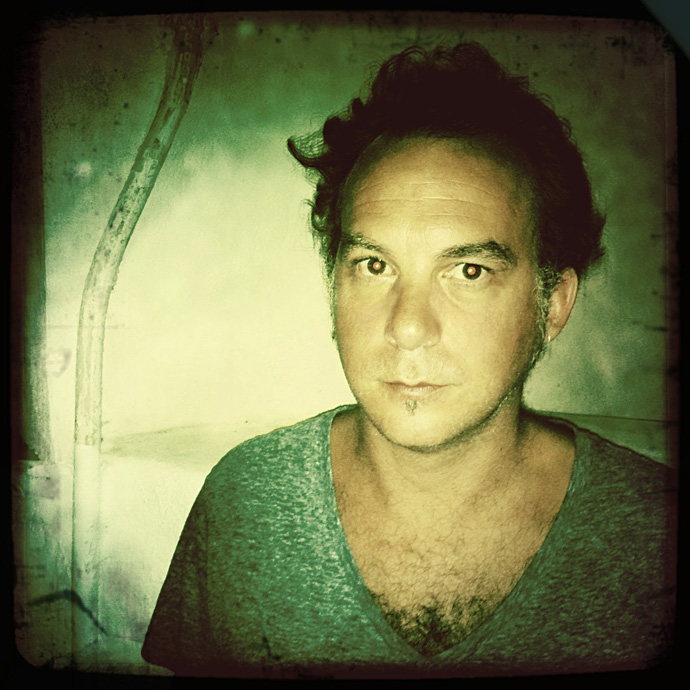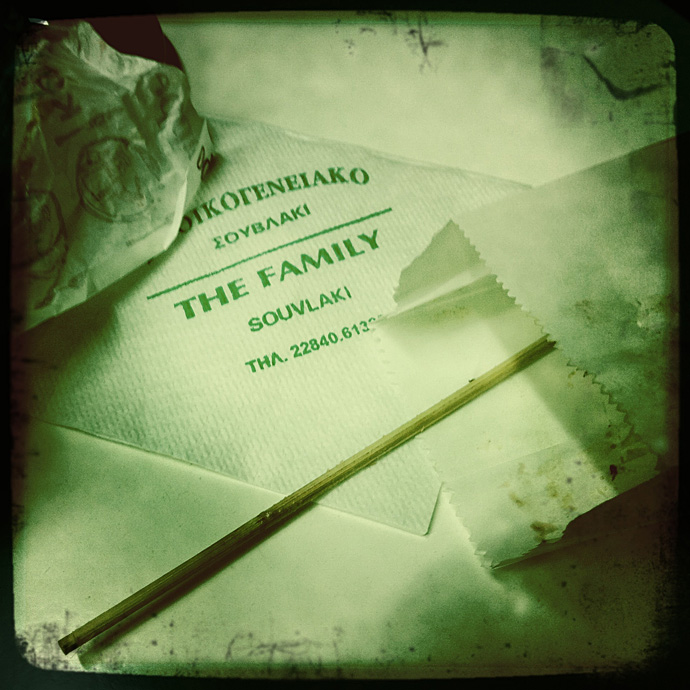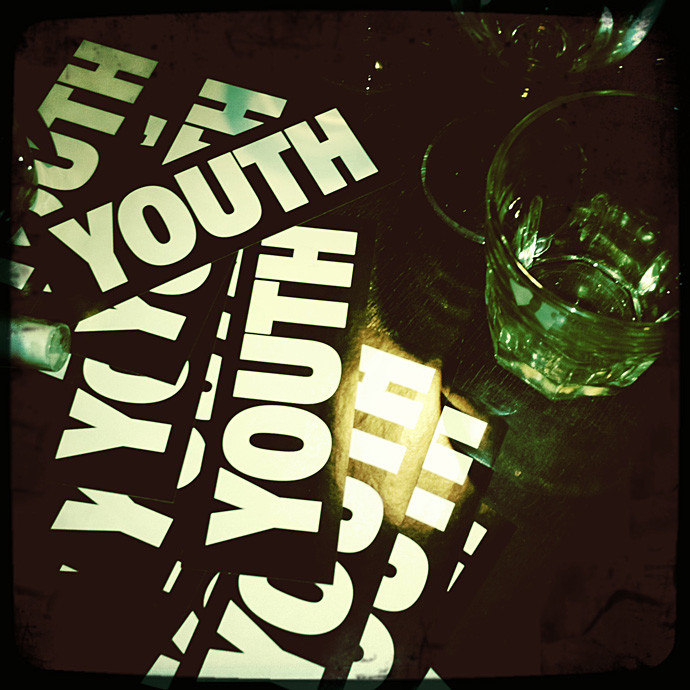new greek cinema: of WASTED YOUTH and “an old whore in need of love”
These days we hear mostly troubling news from a country to which its citizens proudly refer to as “the birthplace of democracy”: Greece. Another spiral of economic turmoil unfolding in slow motion casts a spell upon Europe. And yet accelerated by the recent events, a very different wave reaches us from this troubled country: “The weird wave of Greek Cinema” as The Guardian’s Steve Rose titles. The Stimuleye talks to WASTED YOUTHS director Argyris Papadimitropoulos.
Poster for WASTED YOUTH
It’s the late days of summer 2011. A handful of Athenians, foreigners and expats mingle on Antiparos, a small island in the wide open of the blue Aegean. Athens is far and its troublesome agenda on a halt.
As the night falls scenting the breeze with jasmine, the open air cinema Oliaros, a local institution, announces tonight’s screening with notices on poles and walls: WASTED YOUTH, the film that earlier this year had opened Rotterdams Film Festival. The film’s director, Argyris Papadimitropoulos, hands stickers to the arriving guests: WASTED, MALAKA (wanker), YOUTH, LOVE….
The film is set during a hot summer day in Athens. Much like the city itself, exhausted, confused, unable to make any progress, brimming with desperation and aggression, there is Vasilis, a middle-aged man struggling with the mounting stress to cater his family. On the other side Harry, a sixteen-year-old skater. He and his friends are amusing themselves and wasting time away. Their lives intersect in a contemporary portrait of the city of Athens and a society in crisis.
Left: director Argyris Papadimitropoulos at Antiparos and right: Poster of cinema Oliaros with MALAKA sticker
RENÉ HABERMACHER: How did that screening at the open air cinema come together?
ARGYRIS PAPADIMITROPOULOS: I am a regular there so I know the guys of Oliaros cinema since… forever. They asked me to do a screening and although I was not allowed to do so by my distributors – In Greece films are supposed to have two runs since we have this open air cinema tradition still alive and very popular – I couldn’t say no. I just love this tiny cinema, and the fact that it is free for everybody to watch the films. There are Greek islands much bigger in population who do not have a cinema and that’s sad.
There’s such a huge part of me and my adolescence in WASTED YOUTH that in every screening I still feel kind of weird… weird in a good way. Since I re-lived my teenage years by shooting this film I feel so exposed. It’s strange telling unknown people so many things about myself. But that’s the magic of it, isn’t it?
WASTED YOUTH had its world premiere in Rotterdam Film Festival in January 2011 and was also honoured to be the opening film. Since then it was screened in more than 30 festivals around the world. In some of the best actually. It was a great year, I spent much of it traveling and presenting the film.
We signed with Elephant Eye Films in New York to represent WASTED YOUTH for world sales. For such a tiny budget film I can loudly say: we did great.
Trailer of WASTED YOUTH
R: How was the film generally received by the international audience?
A: I’m more than happy with the comments audience and critics wrote about it.
Screen International described it as “lush, evocative and impressively shot” (laughs).
By its career you can tell that the film was received excellent. The audience loved it and the few that hated it, were the ones that gave me the chance to talk, start a discussion, which back in the beginning was the main intention for the film.
I was with my friend and co-author Jan Vogel and we were saying that we need to make a film about these crazy days we are going through and that we need to do it NOW. Some films are made with a sense of urgency. We actually didn’t spent any time writing scripts or searching for funding, but found our amateur teen guys and a couple of good actors and started improvising on a few pages, something like a synopsis. WASTED YOUTH was privately funded by friends and is what you would call 100% indie.
R: So it was pretty much a “hit and run”?
A: It was a hit and run urban guerilla thing but shot on film (!), not digital.
Over the edge: Still from the movie WASTED YOUTH: Harry (Harris Markou) skates in the empty pool of his parents friend.
R: I really liked the scene in the very beginning when the boy wakes up in the morning, somewhere in this modernist building…. that whole sequence to the skating in the empty pool felt really strong… like frozen time.
A: That was our intention. We wanted to go through all the different people, classes etc in the modern greek society.
So the kid wakes up in a house of a lady with what we call “old money” and starts his day under the surface of the earth.
We wanted to have our little symbolisms without making a mind-fuck film.
There a second levels, second readings etc but only for those who want to read them.
I hate the films that are so personal that you will not get them unless you are the person itself (laughs).
I love stories.
I hate smart ass films.
R: In my eyes your film looked very authentic- which is quite difficult to achieve.
A: Glad to hear! That was what we wanted to do: a spontaneous film!
R: In a way it also gives a beautiful portrait of the city. How do you like Athens?
A: I love Athens. It’s the place that i was born and I know it as the back of my hand. Athens is a character itself in the film. Its chaotic , crazy and sadly neglected.
It’s the old whore that people love to hate but they love paying a visit. Athens needs a bit of love from the people that fuck her everyday.
Argyris getting down with more from the spit
SPOILER ALERT(for the affectionate reader who has not seen the film yet, please skip this part)
R: I was quite surprised at the end when the final “shot” was triggered by the other police man
A: by that I wanted to say that anybody would have done it.
I wouldn’t like the audience to leave the screening and feel sorry about a killer,
since the cops carry guns one day they will trigger them.
R: Thats why you left him blank? as a character
A: True, if by blank you mean what I mean.
END SPOILER ALERT
Still from WASTED YOUTH: Athens
R: The Guardian wrote an article on what they call the “weird wave of Greek cinema”…
A: the fact that the Guardian ran a huge piece on Greek films is already impressive.
A few years back they wouldn’t spend ink on this. That means that there’s something great being born here. I wouldn’t call it a wave and wouldn’t rush to give it names but you can smell something good is going on. There’s no surprise anymore when you see a Greek film in the list of a great festival.
Berlin, Rotterdam, Cannes, Locarno, Venice, Sundance, you name it.
Critisism is there and will always be, there are some people that are sceptical about whatever new is going on and others that want to kill it before it even gets born.
People are not ready for changes, you know.
It seems like when societies are on the edge, edgy things come out of their arts. Remember Argentina, Romania and so on.
What was happening in Greece the last 25 years, let’s say from the early 80’s till the olympics was a fake paradise:
a fake prosperity with fake money, fake happyness, fake tits, fake, fake, fake …
A fake new identity that never made it to the core of neither our souls nor our society – it collapsed in a few days.
One day they told people we are in crisis and people believed it the same day, so there were no solid foundations in this “new order” that was fakely established.
Still from WASTED YOUTH
R: To come back to one of the most interesting things about the article of the Guardian, it were the comments by fellow Greeks being often malevolent, accusing the directors of plagiarism in the case of Dogtooth, or calling the films “a product of mental health problems”.
A: hahaha! that’s great fun.
People cannot accept themselves. When somebody puts a mirror in front of them they can’t cope.
A product of “mental health problems” is the society we use to live in, so are the films as they are suppose to reflect the society.
As for the plagiarism: I would just say that there were very few people saying so, but they created a huge buzz. These people are the ones that do not like the success of someone else because they are stuck in their thing.
The greatest festivals in the world are not stupid to have a work of plagiarism in their catalogue.
Also, plagiarism in art is a huge topic that it is almost impossible to discuss: almost every great artist was accused of that!
Argyris at his favorite souvlaki place in Antiparos.
R: I thought this was a very typical reaction. In a recent article for Vanity Fair Michael Lewis puts it like that:
Individual Greeks are delightful: funny, warm, smart, and good company. I left two dozen interviews saying to myself, “What great people!” They do not share the sentiment about one another: the hardest thing to do in Greece is to get one Greek to compliment another behind his back. No success of any kind is regarded without suspicion.
A: I wouldn’t agree. If you look at the end credit of all this films that made it to the great festivals the last few years, you will realise that everybody helped on each others work. Greeks are easy target to be accused for almost anything since we have this fucked up temper. But on the other hand you can tell that there is still solidarity and support between most of my fellow greek film makers for example.
R: What are you working on next?
A: I write a couple of scripts with friends. Things are hard these days but we’ll keep trying.
I would like every film I make to be so much different from the other. I would also love to make a film abroad, although I love Athens.
Paris, London, Berlin, New York, Rio, Buenos Aires – there are stories everywhere that i would love to tell…
Still from the movie WASTED YOUTH: Harry (Harris Markou)


